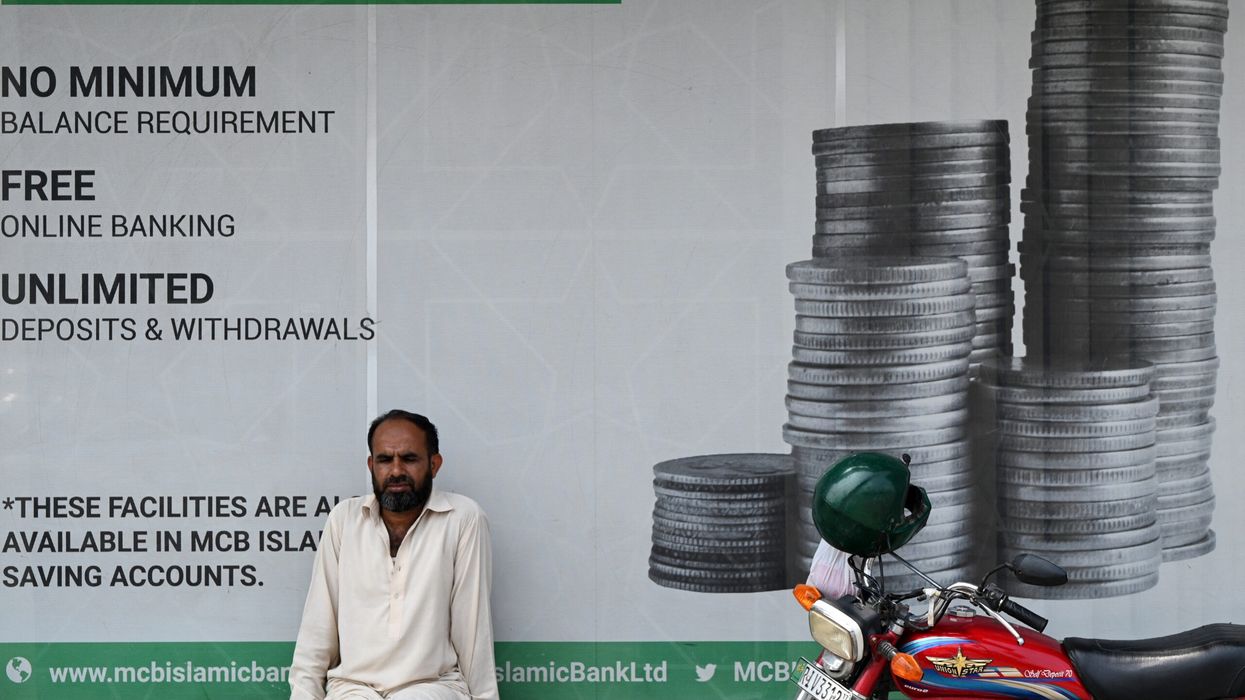PAKISTAN’S central bank kept its key rate unchanged at a record 22 per cent on Tuesday (12) as it waits for the effects of previous hikes to filter through the economy and further tame inflation.
The State Bank of Pakistan’s monetary policy committee said an increase in gas prices last month could affect the inflation outlook. “The decision does take into account the impact of the recent hike in gas prices ... the committee viewed that this may have implications for the inflation outlook, albeit in the presence of some offsetting developments,” the State Bank of Pakistan (SBP) said.
The rate was raised to 22 per cent in an off-cycle meeting in June as a last-gasp attempt to secure a $3 billion (£2.39bn) bailout from the International Monetary Fund (IMF) as part of a reforms programme aimed at bringing stability to the troubled $350bn (£279bn) economy.
Pakistan’s economy has been beset by high price pressures, with monthly consumer price indexbased inflation remaining above 20 per cent since June 2022, and hitting a high of 38 per cent in May this year.
The bank and the IMF both said they expect inflation to ease in the current financial year ending in June 2024, but inflation remained at 29.2 per cent in November after energy prices were hiked to meet reform targets.
“Barring further sizable increase in administered prices, the MPC continues to expect that headline inflation will decline significantly in the second half of FY24,” the bank said.
High borrowing costs have slowed economic growth, which stands at about two per cent, but investors say they have already priced in a peak in interest rates and the expected successful completion of the IMF programme has buoyed stock markets and the currency.
Ahead of the IMF bailout in July, Pakistan had to commit to a slew of measures demanded by the IMF, including revising its budget, demonstrating promises of foreign funding and increasing electricity and natural gas prices. The IMF has released $1.2 billion (£960 million) in funds. Under a staff level agreement reached last month the fund is set to release another $700m (£557m) once approved by its board on January 11.
The country’s foreign reserves have improved, growing to around $7bn (£5.57bn) – enough to cover 1.4 months’ worth of imports and up from $4.4bn (3.5bn) in July.
“The committee expected the successful completion of the first review of the ongoing IMF program is likely to improve financial inflows as well as the FX reserves position,” the central bank said on Tuesday.
The country is scheduled to hold elections in February and most electoral front-runners have said they will look to reignite economic growth.
Pakistan’s benchmark index KSE100 crossed a psychological barrier of 66,000 points to trade at an all-time high, gaining 4,532 points or 7.3 per cent in the week ending December 8, the highest ever weekly return in terms of points. (Reuters)




